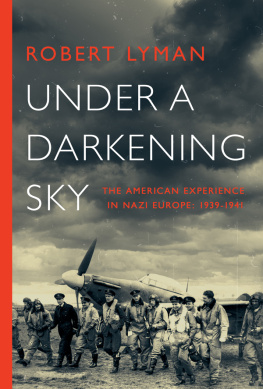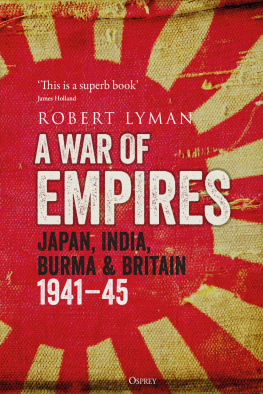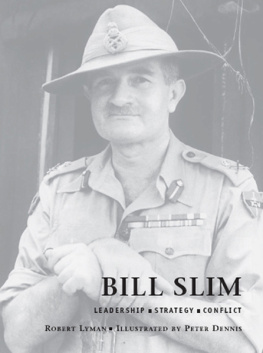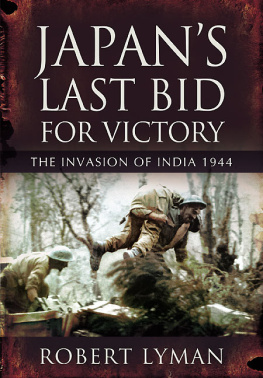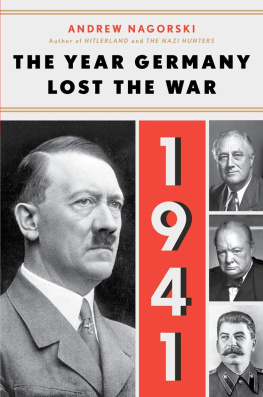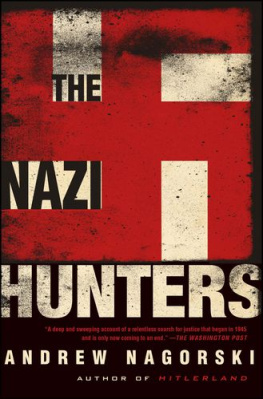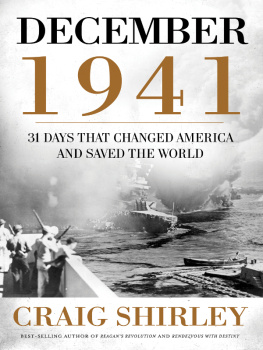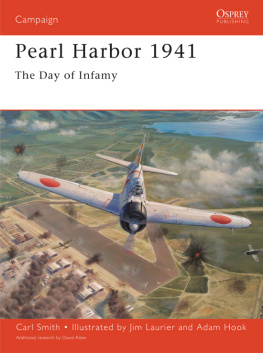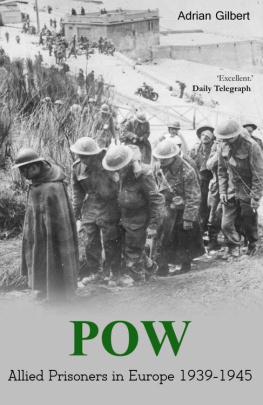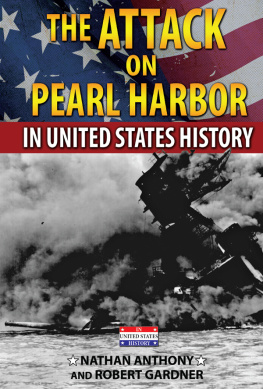Contents
Guide

BOOKS BY ROBERT LYMAN
Slim, Master of War
First Victory
Iraq, 1941
The Generals
Tobruk
Japans Last Bid for Victory
Kohima, 1944
Operation Suicide
Into the Jaws of Death
Bill Slim
The Jail Busters
The Real X-Men
Among the Headhunters

UNDER A DARKENING SKY
Pegasus Books Ltd.
148 W 37th Street, 13th Floor
New York, NY 10018
Copyright 2018 by Robert Lyman
First Pegasus Books cloth edition November 2018
Interior design by Maria Fernandez
All rights reserved. No part of this book may be reproduced in whole or in part without written permission from the publisher, except by reviewers who may quote brief excerpts in connection with a review in a newspaper, magazine, or electronic publication; nor may any part of this book be reproduced, stored in a retrieval system, or transmitted in any form or by any means electronic, mechanical, photocopying, recording, or other, without written permission from the publisher.
Library of Congress Cataloging-in-Publication Data is available.
ISBN: 978-1-68177-736-8
ISBN: 978-1-68177-934-8 (ebk.)
Distributed by W. W. Norton & Company, Inc.
www.pegasusbooks.us
This book is dedicated to those American men and women who took up the fight against fascism in Europe between September 1939 and December 1941, before their country was formally at war, especially those who paid the ultimate sacrifice for their commitment to the cause of political liberty and personal freedom under the law.
It is not enough for those who love peace to talk peace. A lover of peace must understand warits causes and its course. It is not enough to hope. We must also work desperately on practical measures that sometimes seem far short of our dreams.
John G. Winant,
US ambassador to Britain,
19411946
Si vis pacem, para bellum
Plato
CONTENTS
A s a soldier, I once lived with my young family at Lager Bergen-Hohne, the old Wehrmacht barracks complex that sits next door to the site of the notorious transit camp of Bergen-Belsen, where the Dutch teenager, Anne Frank, lost her life. Scores of thousands of Untermenschen , the human detritus of a Nazified Europe, died of neglect in the human garbage dump that once lay hidden amidst the towering silver birches of these remote forests in Lower Saxony. Standing at the entrance to the Bergen-Belsen memorial today is a sobering experience, the bleak surroundings bringing a rush of melancholia triggered by the thought of so many lives wasting to death on the cold, gray sod amidst the terror of starvation, disease, loneliness, and deliberate, criminal neglect. The shadow that invariably passes over my soul on these occasions is made worse by the realization that this horror came about as the result of human design and political purpose. Mensome menwanted this to happen, and many men, and women, allowed it to be so. Horror did not take place of its own accord but was the result of action by somea few perhapsand inaction by many. Bergen-Belsen today stands mute but terrible testimony to human evil and the failure of people to recognize malevolence for what it was, and to act, in a timely manner, against it. Both in Germany during the 1930s, and in the wider world of the democracies, political liberalism failed catastrophically to assert, and protect, its primary virtue, namely liberty under the law. Bergen-Belsenone small place among manywas the product of deliberate calculation, in which in the space of a single generation an entire nation was persuaded to hate. The real travesty is that most of what happened among these bleak birch forests was foreseen. From the moment Hitler took power the world began to know and understandalbeit through a glass darklywhat the Nazi Party was attempting to do. It was clear to many observers that the Nazi plan was to mobilize an entire society in a program of racial and national aggrandizement that would overturn many hundreds of years of Judeo-Christian civilization, not to mention the culture of Bach, Beethoven, Goethe, and Schiller. It would do so at the expense of her neighbors, as well as thoseinside Germany and outconsidered by the Nazis not to reach the physical and moral standard set by nature for the Teuton, the Aryan master race destined to rule the world. The Untermenschen were people unworthy of life, or at least worthy only of being ruledas slavesby Germans. John Winant, the United States ambassador to Britain between March 1941 and April 1946, and one of the great libertarian heroes of this story, concluded that the Nazis not only knew, they planned, with cold premeditation, the slaughter of a race, and all others who opposed their will. Long before war came at all the indifference of an appeasement-minded world allowed these enemies of humanity, bereft of charity, an open field to sow and reap their nightmare harvests.
It was far less easy at the time in the West to see what was happening in the Soviet Union and the horrors of Stalinization, as this happened behind a carefully constructed curtain, designed to prevent outsiders seeing the truth within, but this could not be said for Germany. For an entire decade before Hitler in a pique calamitously (for Germany) declared war on America on December 11, 1941, considerable numbers of North Americanstravelers, academics, journalists, diplomats, housewives, businessmen, among otherspossessed a window into the darkening soul of this ancient, declining culture, and made their findings known, often in clear and unequivocal terms, to the folks back home. Some of these warnings strike the modern reader to be remarkably prescient. But was anyone listening? Some, a courageous few, decided to take the fight to the Nazis by direct action well before America found itself committed to war. It is to them that this book is dedicated.
Some people argue today that the Second World War could not have been foreseen. I disagree. When Abbott (A.J.) Liebling of the New Yorker asked long-retired General Pershing in 1940 whether he argued against reductions in American military power after the Great War because he feared the consequences of the rise of totalitarianism in Europe, the grizzled veteran snarled back, Who the hell could have foreseen this? Well, many, actually. Some limply, and wrongly, like the Nazis themselves, blame Versailles. It is historically fraudulent to argue such a thing as causal inevitability, or historic determinism with respect to the start of the Second World War, suggesting for instance that the peace agreement in 1919 caused the next war. It was the Nazis who brought about this war, aided and abetted by incontinent Western politicians who failed to understand the impact of their own pacific inactivity with respect to the looming threats facing them. Could the Nazis have been stopped? Yes, if free nations had done more to stand up for the political cultures they led and in which they purported to believe. The problem with arguing that nothing could have been done to prevent an out-of-control Nazi dictator thrusting his country into destructive war based on a repulsive ideology is that it denies the power of human contingency. All men and women have the power to act to prevent the encroachment of evil. The first challenge is to recognize malevolence for what it is (a good place to start is to accept that humans are capable of extraordinary depravity); the second to act in a timely way against it. Unfortunately, the only ones who acted precipitately during the 1930s were the dictators.

